💰Cost of Living
Understanding what life actually costs in Thailand
Understanding what life actually costs in Thailand
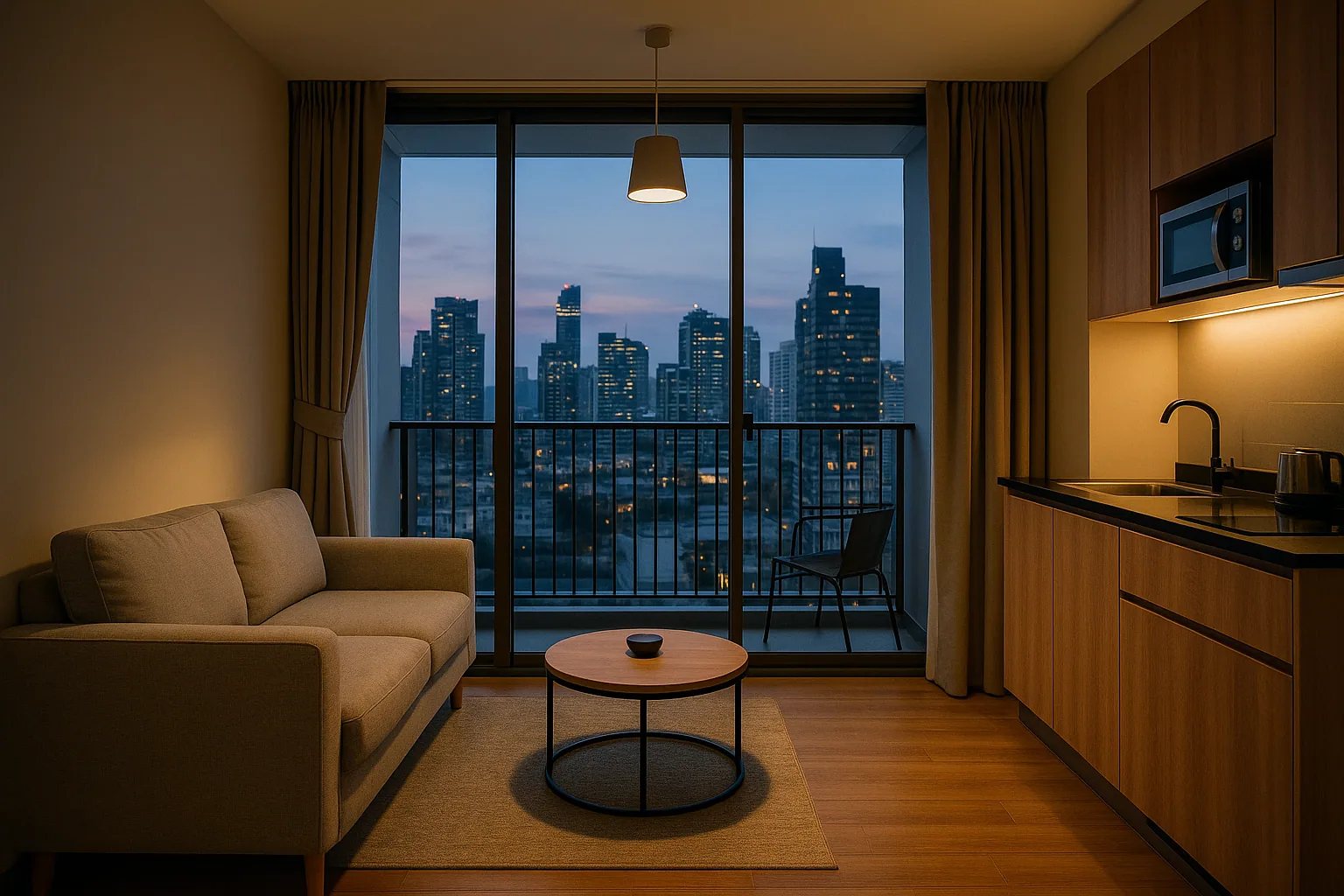
Your friend back home asks the inevitable question: "So how much does it cost to live in Thailand?" You pause, because the answer is somewhere between "I could live like a king on $1,000 a month" and "I just spent $25 on a cocktail in Thonglor." Thailand's cost of living is famously affordable compared to Western countries, but the range is so vast that generic answers become meaningless. What you actually spend depends on whether you're eating khao pad from a street cart or brunch at a rooftop restaurant, whether you're renting a studio in the suburbs or a penthouse near BTS Phrom Phong.
The truth is that Thailand accommodates nearly any budget. I've known digital nomads living comfortably on 35,000 baht monthly and expat families spending 200,000 baht without feeling extravagant. The cost-of-living data shows Thailand is around 45-55% cheaper than the United States overall, and as much as 65-70% cheaper for rent and eating out, but that's an average that obscures important variations. Location matters enormously—central Bangkok is often 50-100% more expensive than central Chiang Mai for comparable one-bedroom condos, and in some luxury cases up to around 3×. Lifestyle choices matter even more—whether you cook Thai food at home or eat imported ingredients makes a monthly difference of thousands of baht.
This guide breaks down actual costs across housing, food, transportation, and lifestyle categories. Rather than presenting theoretical minimums or aspirational luxury budgets, these figures reflect what you'll genuinely encounter based on the choices most expats make. Think of this as the realistic middle ground—not backpacker frugality, not diplomatic excess, but the comfortable range where most people building lives in Thailand actually land.
"Thailand accommodates nearly any budget. What you spend depends less on Thailand's prices and more on which version of Thailand you choose to inhabit."
Rent will consume your largest single expense, and it varies more dramatically than any other category. In Bangkok, the same 15,000 baht gets you either a modern studio with a pool in the suburbs or a windowless room in Sukhumvit. Location isn't just about prestige—it's about quality of life. That cheaper apartment far from the BTS might save you 5,000 baht monthly in rent but cost you 2,000 baht in taxi rides and two hours daily sitting in traffic.
Bangkok's rental market operates in distinct tiers. Budget studios in areas like Ramkhamhaeng or Bearing run 6,000-12,000 baht monthly—basic but functional, usually including a small gym and pool. These serve well for people who spend most time outside or don't mind longer commutes. The middle tier—15,000-30,000 baht—is where most expats land. This gets you a modern one-bedroom near BTS or MRT, decent facilities, and a neighborhood with restaurants, cafes, and services. You're paying for convenience as much as space.
Premium areas like Thonglor, Ekkamai, or Sathorn demand 35,000-80,000 baht for one-bedrooms, more if you want space or high floors. These aren't just addresses—they're ecosystems. You're near international restaurants, specialty grocery stores, coworking spaces, and other expats. Whether that's worth an extra 20,000 baht depends on your priorities. For detailed information about finding apartments, see our guide to renting condos in Thailand.
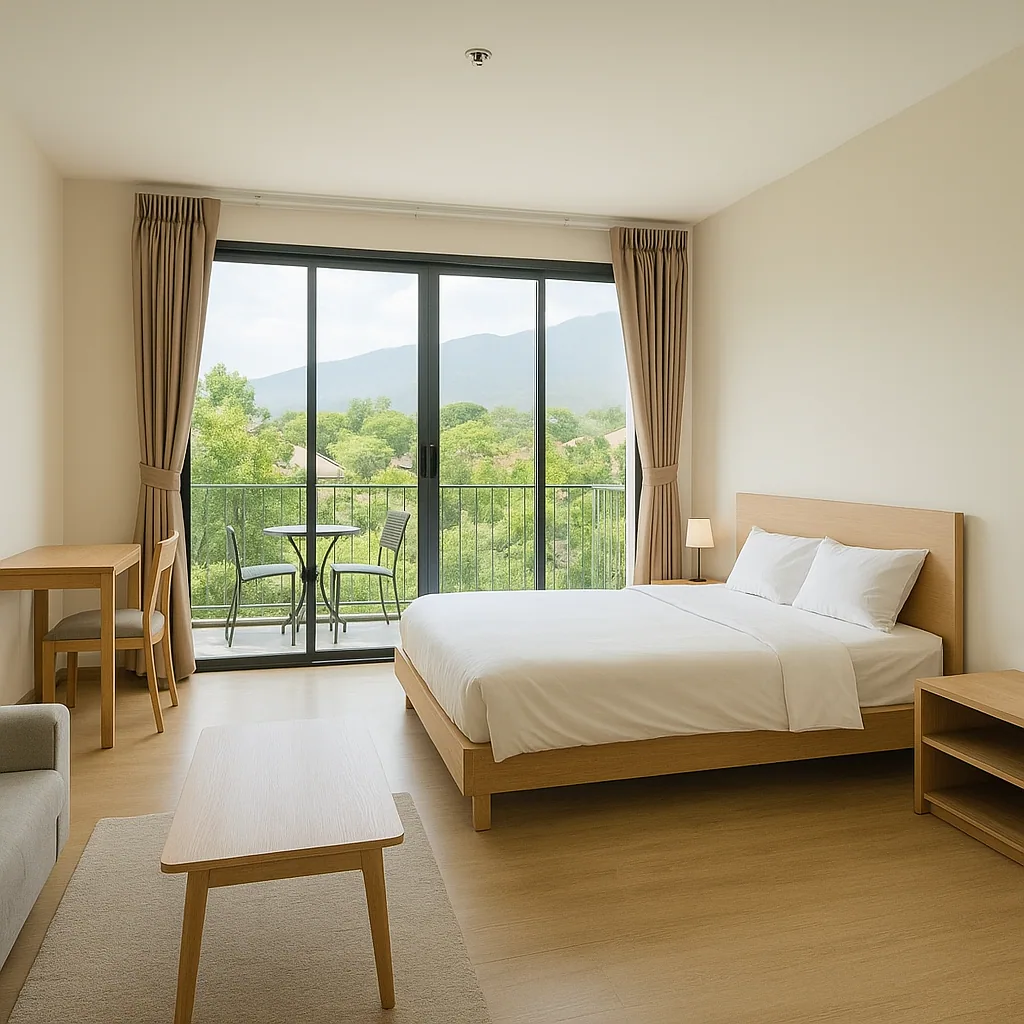
Chiang Mai offers significantly better value. That same 15,000 baht gets you a spacious one-bedroom in Nimman with modern finishes and full facilities. Budget studios start around 4,000-8,000 baht in the Old City or nearby neighborhoods. Even nice houses with gardens rent for 15,000-25,000 baht—prices that would barely cover a studio in Bangkok. The tradeoff is less urban infrastructure, fewer international amenities, and a much smaller pool of other expats if community matters to you.
Beach towns like Phuket and Koh Samui skew expensive relative to their infrastructure. You're paying a premium for proximity to beaches, and tourist-area prices inflate everything. Basic apartments away from beaches run 8,000-15,000 baht, but anything with ocean views or walking distance to sand starts at 40,000-70,000 baht. These locations work better for people who value beach lifestyle over urban convenience, or who have higher budgets to offset the inflated costs.
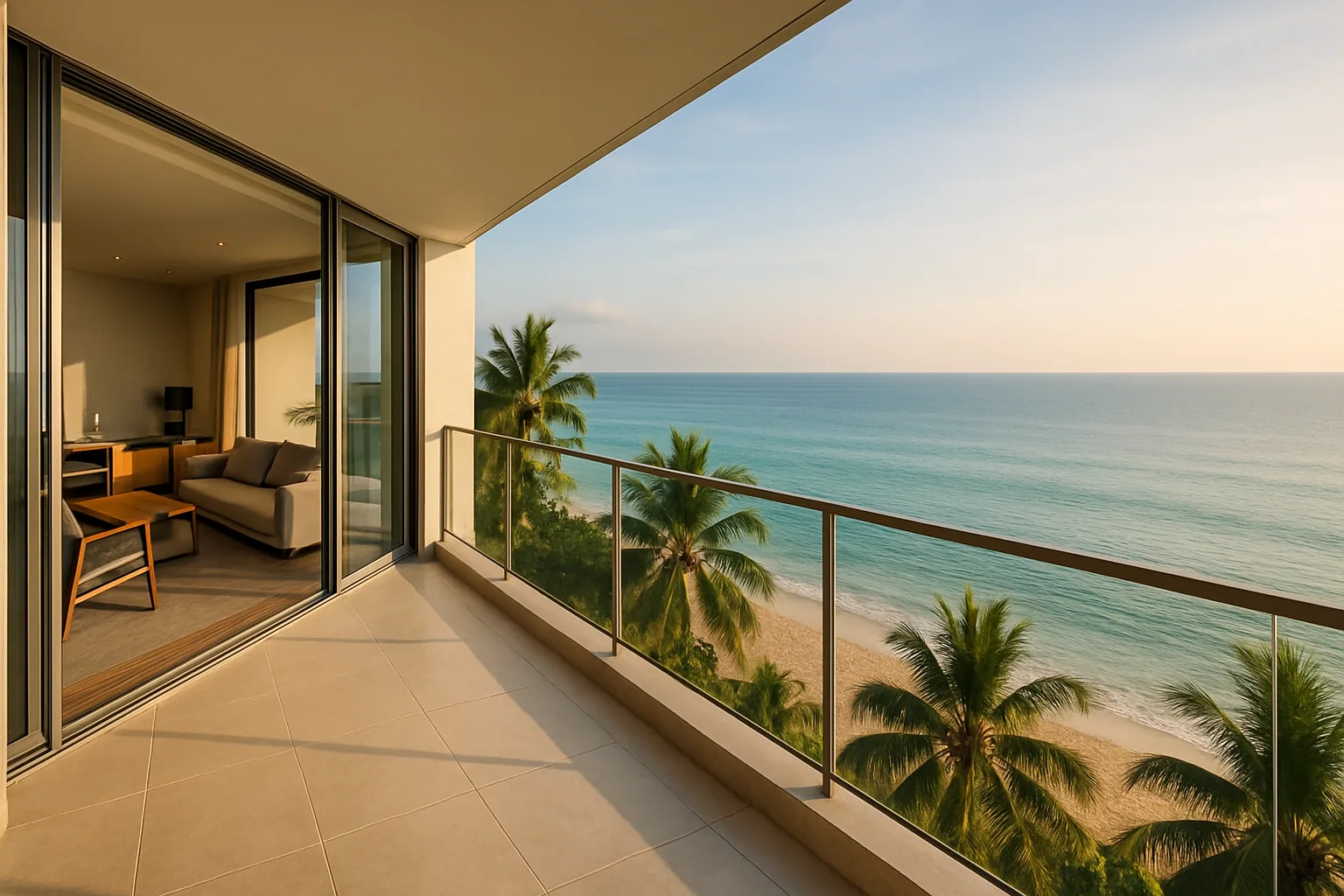
Don't forget utilities when budgeting housing costs. Electricity runs 1,500-3,500 baht monthly if you use air conditioning daily (and in Thailand's heat, you will). Official residential rates are around 4 baht per unit, but many budget buildings mark this up to 7-8 baht per unit; some condos charge 5-6 baht. Water is negligible—100-300 baht monthly. Internet fiber costs 600-1,200 baht for reliable speeds. Understanding how utilities work helps avoid surprises when bills arrive.
Here's where Thailand's reputation for affordability becomes real. A complete meal from a street food vendor—rice, curry, maybe some grilled chicken—costs 40-80 baht. The same nutritional value at a Western chain restaurant runs 150-250 baht. Over a month, these choices compound dramatically. Someone eating primarily Thai food spends 6,000-10,000 baht monthly. Someone preferring Western-style meals spends 20,000-35,000 baht. Same person, same city, different food culture.
I initially resisted eating local food daily, craving familiar flavors and ingredients. My monthly food budget hovered around 25,000 baht—reasonable by Western standards but high for Thailand. After six months, I'd adapted. Not completely—I still buy imported cheese and occasionally crave a proper burger—but my baseline shifted. Now I spend about 12,000 baht monthly: local restaurants for lunch (80-120 baht), home cooking several dinners weekly with market vegetables and meat (200-300 baht per meal for two people), and occasional splurges at nice restaurants (800-1,500 baht).
The split between eating out and cooking at home dramatically affects costs, but not in the way you'd expect. In Western countries, cooking saves money. In Thailand, the calculus shifts. A street food meal costs less than buying ingredients to cook the same dish. But if you're cooking Western-style food with local ingredients—pasta with fresh vegetables, stir-fries with Thai produce, roasted chicken with rice—you can match or beat eating out while controlling quality and portions.
Budget Thai Food Focused: 6,000-10,000 THB
Primarily street food and local restaurants, occasional Western treats, minimal imported groceries
Mixed Diet: 12,000-18,000 THB
Balance of local and Western food, some imported ingredients, mid-range restaurants
Western-Heavy: 20,000-35,000 THB
Regular Western restaurants, imported groceries, international supermarkets, frequent dining out
Groceries present their own pricing puzzle. Local Thai products cost what you'd expect in Southeast Asia—cheap. A kilogram of chicken breast runs 90-150 baht. Rice is essentially free (5kg for 150-300 baht lasts weeks). Vegetables from markets cost 30-80 baht per kilogram. But imported products skyrocket. That Australian cheese you love? 250-400 baht for 200 grams. European wine? 600-2,000 baht per bottle. These aren't luxuries; they're literally imported across continents. Budget accordingly if Western ingredients matter to you, or learn to adapt to Thai equivalents.
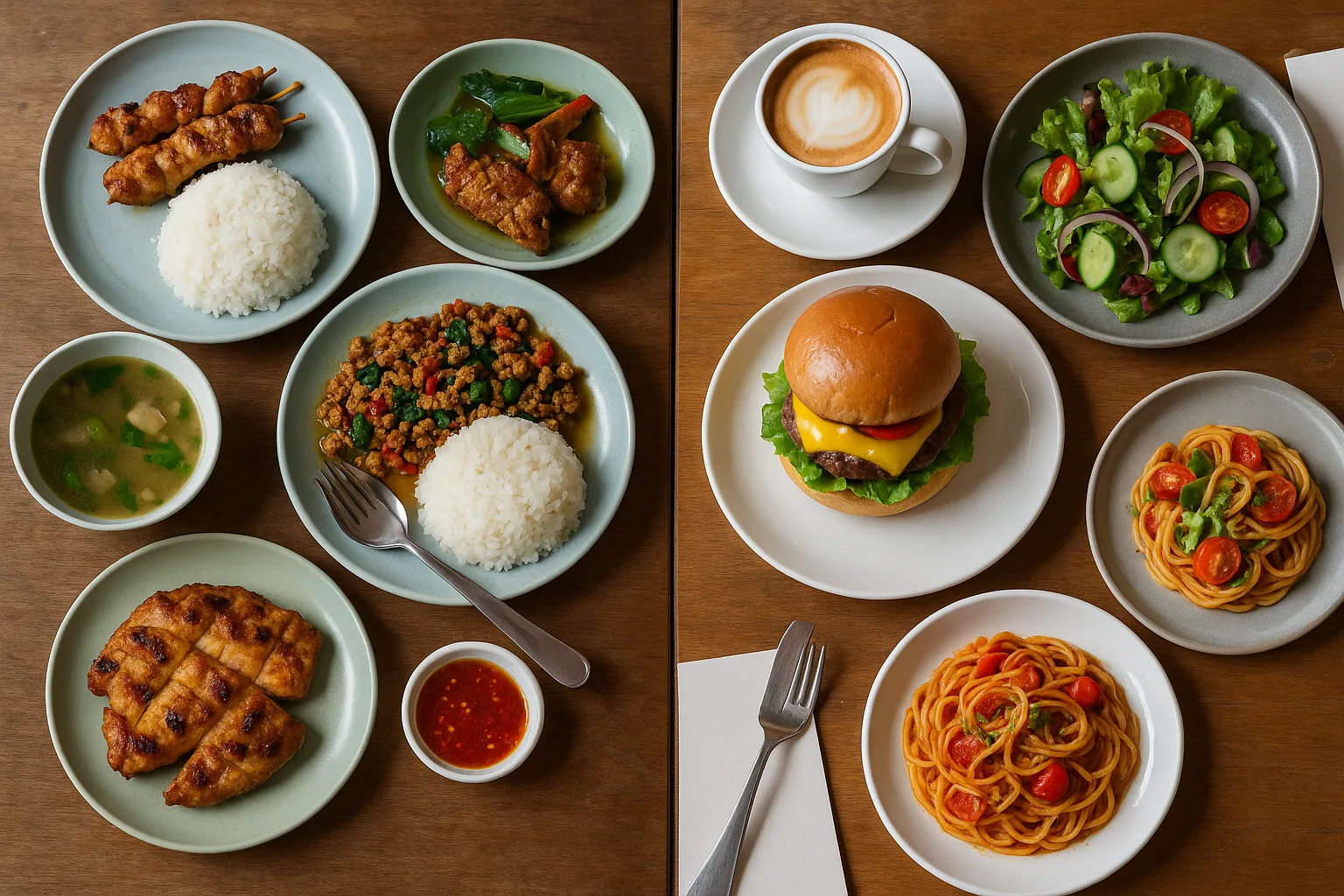
Bangkok's public transport is excellent and affordable if you live near it. Most BTS and MRT rides fall in the 20-50 baht range depending on distance; complex multi-line trips or future fare hikes can push it higher. A daily commuter might spend 1,000-2,000 baht monthly on transit. Buses cost even less—8-25 baht per ride—though they're slower and less comfortable. The catch is that "near" qualifier. Much of Bangkok sits beyond easy transit access. If your condo is a 15-minute walk from the nearest station, you'll end up taking motorcycle taxis (20-50 baht) or Grab rides (80-200 baht) constantly. Those "short" trips add 3,000-5,000 baht monthly.
Many expats eventually rent or buy motorcycles. Monthly rental runs 2,500-5,000 baht, plus 500-1,200 baht for gas. This provides freedom to explore and eliminates small transportation costs, but introduces risks—Bangkok traffic is chaotic, and accidents are common. The calculation changes outside Bangkok. Chiang Mai lacks comprehensive public transport; nearly everyone drives motorcycles. Beach towns have minimal transit. A motorcycle becomes essential, making that 3,500 baht monthly cost nearly unavoidable.
Car ownership makes sense for families or people living outside urban cores. Long-term rentals for basic cars start around 11,000-15,000 baht monthly, with SUVs and nicer models 20,000-35,000+ baht. Add 2,000-5,000 baht for gas, 500-2,000 baht for parking at your condo, and insurance (1,000-3,000 baht monthly depending on coverage). You're looking at 15,000-35,000+ baht total monthly cost for car convenience. Some people gladly pay it for comfort and safety; others consider it wasteful when taxis and transit work fine.

After covering housing, food, and transport, lifestyle expenses separate minimal living from actually enjoying Thailand. Gym memberships run 1,500-3,000 baht monthly for decent facilities—far cheaper than Western gyms. Thai massages cost 200-400 baht per hour, making regular self-care affordable in a way it rarely is elsewhere. A yoga class is 300-600 baht. These aren't luxuries in Thailand; they're part of normal life.
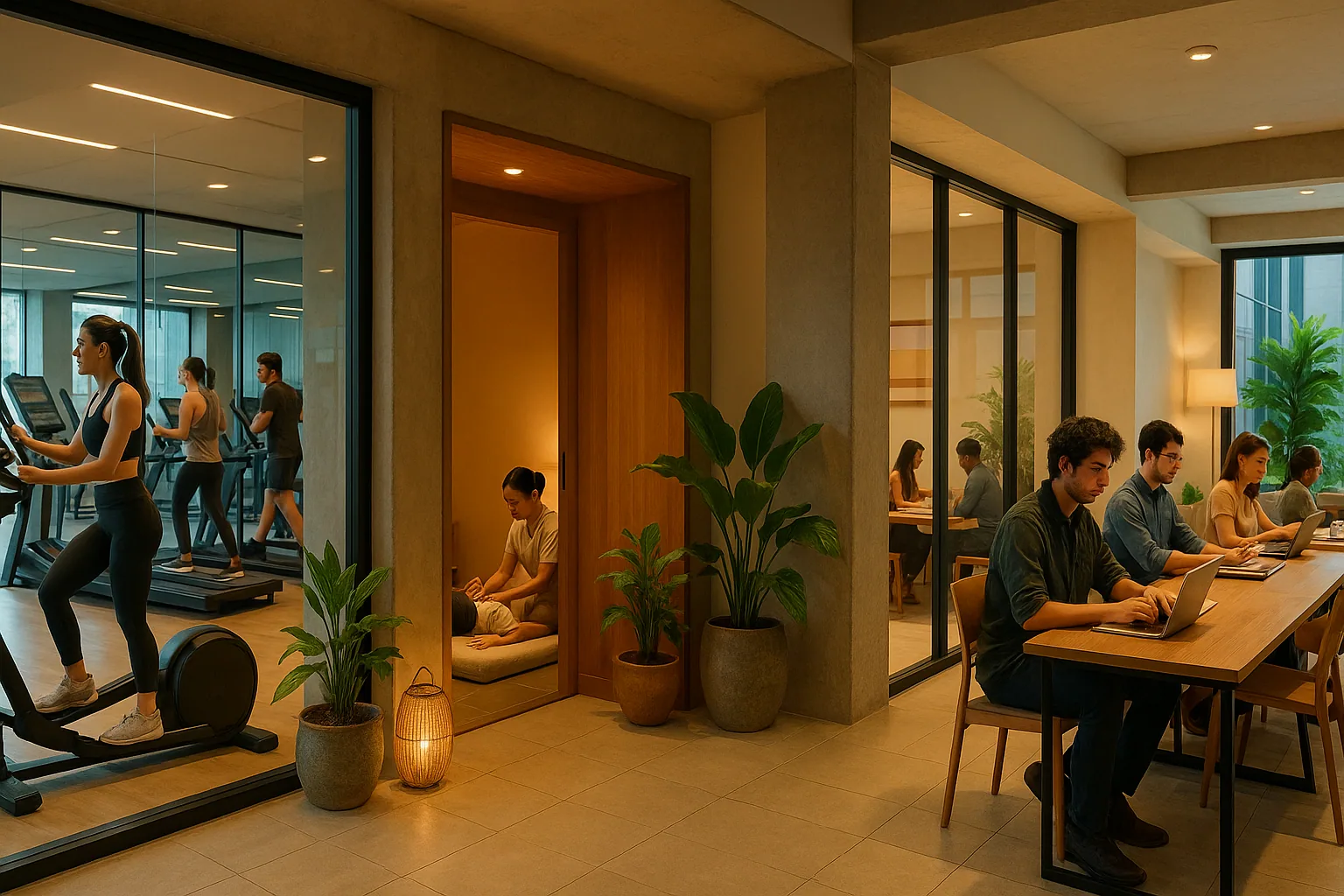
Entertainment costs scale with your choices. Movie tickets run 200-350 baht—reasonable for occasional outings. Coworking spaces cost 3,000-8,000 baht monthly if you need professional workspace. A night out drinking in a normal bar might cost 1,000-2,000 baht; the same night in upscale Thonglor bars runs 3,000-5,000 baht easily. Weekend trips within Thailand—beach towns, northern mountains, national parks—typically cost 5,000-15,000 baht including accommodation, transport, and activities.
Healthcare deserves special mention because it's both essential and remarkably affordable. International hospital visits run 1,000-2,000 baht for standard consultations, 3,000-8,000 baht for specialist visits with tests. Major procedures cost a fraction of Western prices. Expect at least 35,000-50,000 baht annually for basic expat health insurance, and 75,000-100,000+ baht per year for comprehensive international coverage. Very bare-bones local plans can be cheaper, but come with trade-offs. Some expats skip insurance and self-pay, maintaining an emergency fund. Others consider proper insurance non-negotiable. Budget at least 2,500-5,000 baht monthly for healthcare whether through insurance premiums or a dedicated savings fund.
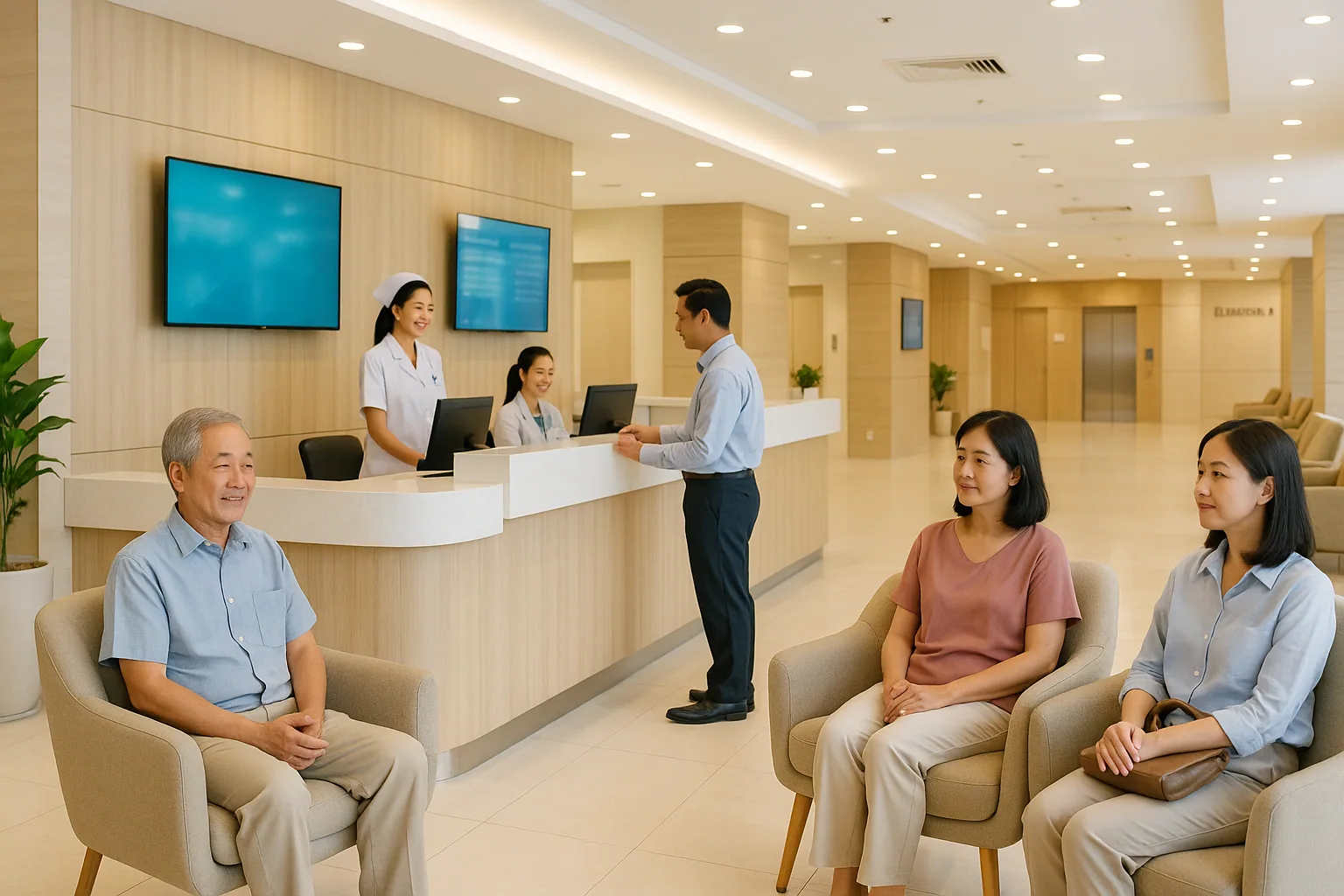
Visa expenses: Visa runs, extensions, or annual visa costs add 10,000-40,000 baht yearly depending on your visa type. Factor this into monthly budgets.
Home country expenses: Many expats maintain phone plans, subscriptions, or storage back home. These "invisible" costs can add 5,000-15,000 baht monthly.
Remittances: If you're supporting family elsewhere or maintaining assets abroad, international transfer fees and exchange rate losses chip away at budgets. Use services like Wise to minimize this, but expect some loss. Learn more about managing international money transfers.
Rather than present abstract numbers, here are three realistic monthly budgets representing different lifestyle levels. These assume single adults without dependents, though families simply multiply most categories by 1.5-2x.
This covers basic comfortable living in Bangkok or a step up in smaller cities. You're not scrimping constantly, but you're making conscious choices about spending.
This budget works for digital nomads, teachers, or anyone prioritizing experiences over amenities. You'll live well by local standards.
The sweet spot for most expats. You're not watching every baht, can afford regular luxuries, and live in convenient locations with good amenities.
Most expats with decent remote income or professional jobs in Thailand land here. Life feels balanced—affordable enough to save, comfortable enough to enjoy.
Living very well by Thai standards—premium locations, frequent dining out, full amenities, and flexibility for spontaneous travel and purchases.
Typical for senior expat professionals, successful entrepreneurs, or remote workers with strong currencies. You're living the Thailand lifestyle without compromise.
The beautiful thing about Thailand is how easily you can adjust spending to match your income. Feeling tight financially? Shift to local food, move slightly farther from city centers, use public transport more. Got a raise? Upgrade to a better condo, eat out more frequently, take weekend trips. The flexibility exists at every level because Thailand genuinely serves multiple markets simultaneously.
But here's what took me time to learn: don't optimize purely for cheapness. Yes, you can live on 25,000 baht monthly if you're willing to compromise everywhere. But at some point, you're not actually living in Thailand—you're existing there while missing most of what makes it special. The incredible massages, the weekend trips to islands, the spontaneous dinners with friends at that new restaurant everyone's talking about—these experiences require budget flexibility.
I'd recommend coming with at least 50,000-60,000 baht monthly if you're moving to Bangkok, 40,000-50,000 baht for Chiang Mai. This gives you enough buffer to handle unexpected costs, establish yourself properly, and actually enjoy the transition rather than stress about every expense. Once you're settled and understand your actual spending patterns, you can adjust up or down. Understanding Thailand's banking system and managing your money efficiently helps make the most of your budget.
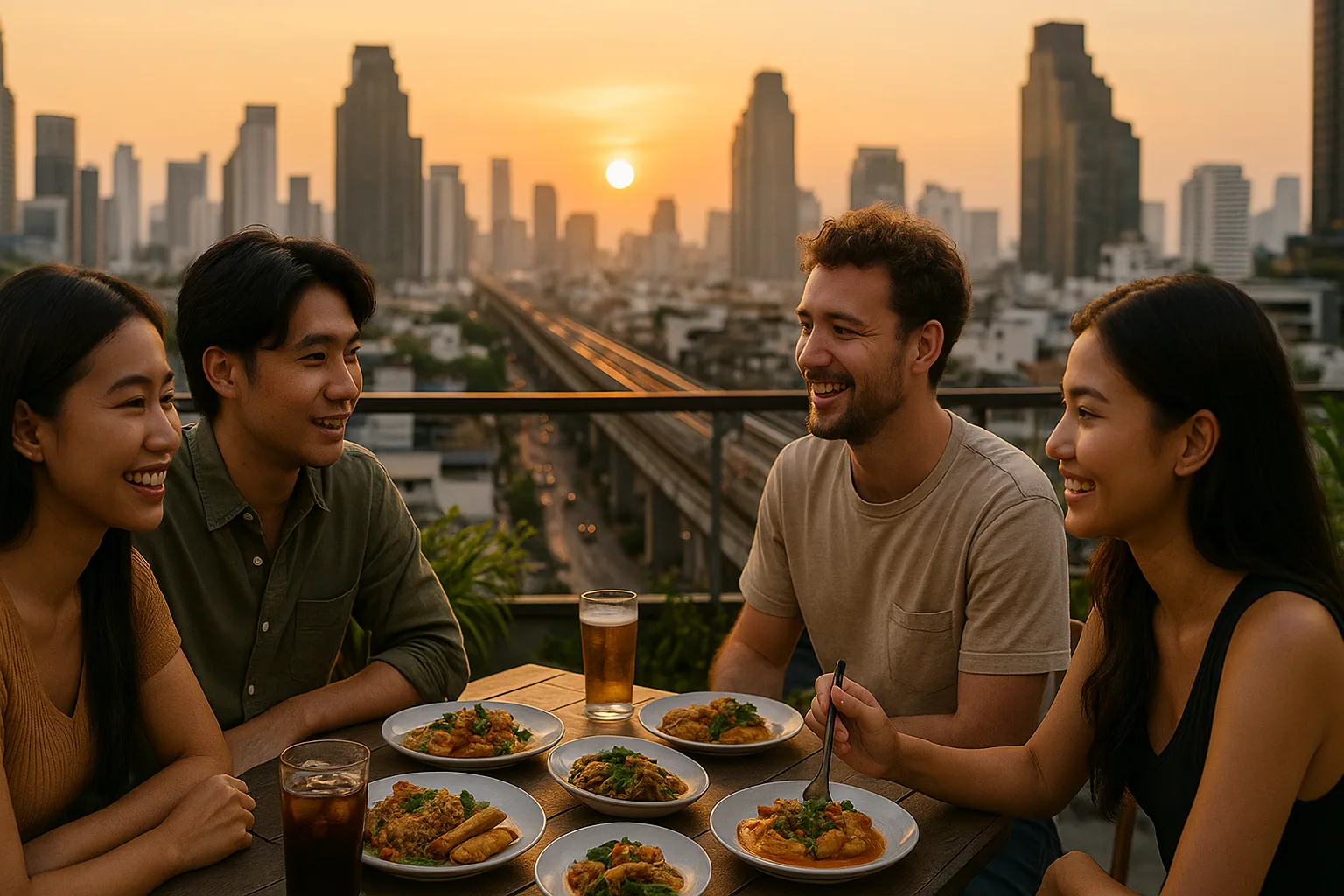
The question isn't whether Thailand is affordable—it is, dramatically so by Western standards. The question is which version of Thailand you want to inhabit. The cost of living is low, but the range of living is vast. Budget thoughtfully, prioritize what matters to you, and remember that you can adjust as you go. Thailand accommodates minimalists and maximalists equally well. Your job is figuring out where on that spectrum you want to land, then building your budget around that life rather than around arbitrary restrictions. For more help planning your finances in Thailand, explore our guide to detailed budget planning.
HOUSING (BANGKOK)
FOOD (MONTHLY)
TRANSPORT
LIFESTYLE
Minimum Comfortable
50,000 THB
Bangkok baseline for decent quality of life
Sweet Spot
65-75K THB
Where most expats find balance